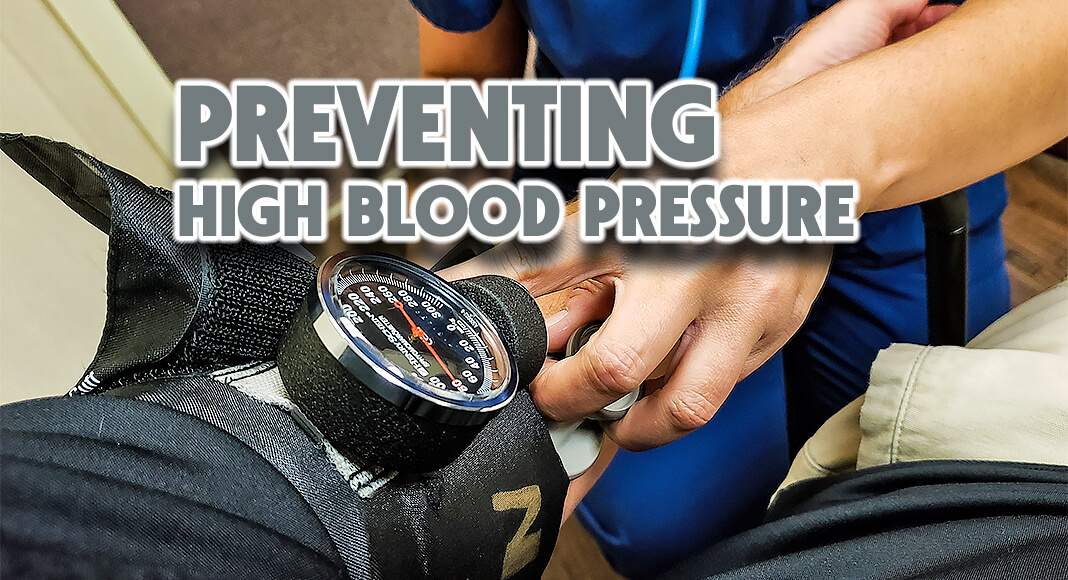
Mega Doctor News
| KEY POINTS |
| By living a healthy lifestyle, you can help keep your blood pressure in a healthy range. |
| Preventing high blood pressure, which is also called hypertension, can lower your risk for heart disease and stroke. |
| Health care professionals and other partners can help by using the strategies in The Surgeon General’s Call to Action to Control Hypertension. |
Practice Healthy Living Habits to Help Prevent High Blood Pressure
Eat a healthy diet
Choose healthy meal and snack options to help you avoid high blood pressure and its complications. Be sure to eat plenty of fresh fruits and vegetables.
Talk with your health care team about eating a variety of foods rich in potassium, fiber, and protein and lower in salt (sodium) and saturated fat. For many people, making these healthy changes can help keep blood pressure low and protect against heart disease and stroke.
The DASH (Dietary Approaches to Stop Hypertension) eating plan is a healthy diet plan with a proven record of helping people lower their blood pressure.1
Visit CDC’s Nutrition, Physical Activity, and Obesity website to learn more about healthy eating and nutrition.
Keep yourself at a healthy weight
Having overweight or obesity increases your risk for high blood pressure. To determine whether your weight is in a healthy range, doctors often calculate your body mass index (BMI). If you know your weight and height, you can calculate your BMI at CDC’s Assessing Your Weight. Doctors sometimes also use waist and hip measurements to assess body fat.
Talk with your health care team about ways to reach a healthy weight, including choosing healthy foods and getting regular physical activity.
Be physically active
Physical activity can help keep you at a healthy weight and lower your blood pressure. The Physical Activity Guidelines for Americans recommends that adults get at least 2 hours and 30 minutes of moderate-intensity exercise, such as brisk walking or bicycling, every week. That’s about 30 minutes a day, 5 days a week. Children and adolescents should get 1 hour of physical activity every day.
Visit the website for CDC’s Division of Nutrition, Physical Activity, and Obesity to learn about ways you can be physically active.
Do not smoke
Smoking raises your blood pressure and puts you at higher risk for heart attack and stroke. If you do not smoke, do not start. If you do smoke, quitting will lower your risk for heart disease. Your doctor can suggest ways to help you quit.
For more information about tobacco use and quitting, see CDC’s Smoking and Tobacco Use website.
Limit how much alcohol you drink
Do not drink too much alcohol, which can raise your blood pressure. Men should have no more than 2 alcoholic drinks per day, and women should have no more than 1 alcoholic drink per day. Visit CDC’s Alcohol and Public Health website for more information.
Get enough sleep
Getting enough sleep is important to your overall health. It also helps keep your heart and blood vessels healthy. Not getting enough sleep on a regular basis is linked to an increased risk of heart disease, high blood pressure, and stroke.2 Visit CDC’s Sleep and Sleep Disorders for resources on how to get better sleep.
Resources
Read The Surgeon General’s Call to Action to Control Hypertension and share it with your colleagues, peers, and loved ones. Incorporate action steps into your work, community, or personal life to help reduce high blood pressure.
CONTENT SOURCE:
National Center for Chronic Disease Prevention and Health PromotionREFERENCES
- National Heart, Lung, and Blood Institute. Your Guide to Lowering Your Blood Pressure With DASH [PDF – 792K]. National Institutes of Health; 2006.
- National Heart, Lung, and Blood Institute. Sleep deprivation and deficiency. Accessed January 12, 2024. https://www.nhlbi.nih.gov/health-topics/sleep-deprivation-and-deficiency
Information Source: CDC










